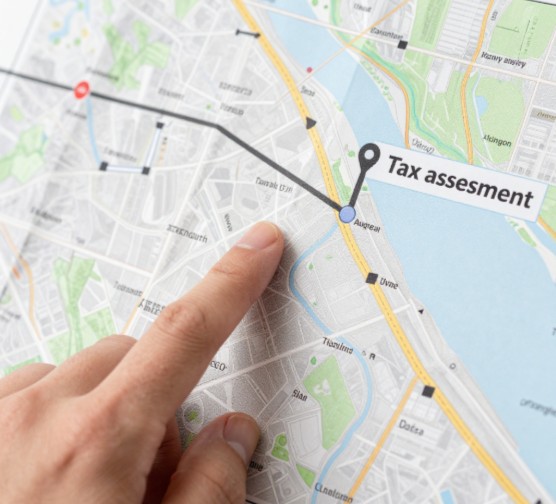We all know the importance of cash in businesses. It costs a lot to run and grow a business, especially when it’s brand new. You don’t want your business to temporarily shut down due to cash flow issues. You can’t afford to do that because it can mess up your track record of delivering on promises, hurt your reputation and ability to retain employees, and put undue strain on your relationships due to the stress of not meeting obligations. Learn why you should double your cash liquidity buffer as a business.
What is a cash liquidity buffer?
A cash liquidity buffer is a fund of liquid assets you keep on hand to help you meet your short-term obligations. Cash liquidity buffers are typically used by businesses to protect against unexpected changes in the economy.
One of the most common uses for a cash liquidity buffer is to help you pay your bills when they fall due and especially in the face of an unexpected event like a natural disaster. The cash liquidity buffer is to be used to settle critical supplier and wage bills even if no money is coming in.
Cash liquidity buffers are also useful for helping businesses maintain day-to-day operations during economic uncertainty. For example, if there’s an increase in inflation or interest rates, it may become more expensive for companies to borrow money. Many businesses rely on credit lines to finance inventory purchases and other expenses. If they can’t borrow money because of increased interest rates, they’ll need additional cash on hand due to this change in the economy.
The different components of cash liquidity buffer in a business
There are several different components to the cash liquidity buffer in a business:
- Current assets: Current assets are items such as inventory, accounts receivable and prepaid expenses that you can convert into cash quickly. Current assets are important to your company’s overall liquidity because they provide immediate access to capital when needed.
- Cash on hand: Cash on hand is your cash in your bank account or the vault. It’s also known as liquid cash. The cash-on-hand buffer is important because it ensures you have enough money to pay for expenses and taxes and keep up with business operations. A business needs to have a minimum amount of cash on hand to cover its short-term needs. A business may use financing facilities such as overdraft accounts to cover its short-term needs. But cash is considered more stable than other types of financing, such as debt and equity financing.
- Accounts receivable: Accounts receivable refers to money owed by customers who have purchased goods or services from your business but haven’t yet paid their bills. This money belongs to your company until they pay what they owe. The longer they wait, the less likely they are to pay, which means that accounts receivable can sometimes become worthless or even a liability instead of an asset if you don’t collect the payment within a reasonable time frame (this is true if you need an external debt collector to realize the asset).
- Short-term investments: Short-term investments can be used as collateral for loans or as an emergency fund if you need money fast. These investments should be held in highly liquid assets such as government bonds and savings accounts with banks or other financial institutions.
- Inventory: Inventory is a major component of the cash liquidity buffer in a business. The inventory is the most variable component of working capital. Inventory also represents a significant portion of the assets of many companies, including retailers and wholesalers. Therefore, it can be used as an indicator to measure the risk associated with the company’s liquidity position. Inventory management is crucial in managing any business’s cash flow and profitability. It involves managing inventory levels to match customer demand at optimal costs while maintaining adequate inventory levels to ensure continuous operations.
- Accounts payable: This is money owed by your company to others, suppliers, and contractors and generally paid within 60 days after being invoiced by the vendor or provider of service.
Here are a few reasons why businesses should keep as much cash on hand as possible:
1. Protect against unforeseen downturns in sales
While it’s difficult to predict when a downturn will occur, it’s important for companies to prepare for the possibility of having less cash than expected at any given time. When sales fall short of expectations, having more cash on hand gives companies more flexibility in dealing with these situations. For example, suppose your company has a large upcoming payment due to vendors or customers, and sales unexpectedly fall off. You’ll have a cash cover for the payment without borrowing or selling assets at unfavourable prices.
2. Preserve working capital for investments and growth opportunities
Businesses use their cash for expenses like payroll, rent, and supplies, but they also need cash for investments like marketing campaigns, customer acquisition costs, and new equipment or facilities. Keeping enough money on hand to cover these expenses helps ensure your business can continue providing value to customers.
3. Increase your creditworthiness with lenders and investors.
Lenders tend to view companies that maintain healthy cash reserves favourably because they have more options when it comes time to borrow money or access other forms of financing. Investors also tend to favour businesses with strong financials over those with insufficient reserves, even if those reserves aren’t being used at the moment, because it means there’s less risk involved in making an investment decision.
4. Reduce dependence on debt financing and lines of credit
Your business might be dependent on debt financing or lines of credit to fund operations and growth plans. If you’re not generating enough cash flow from operations, it’s easy for these loans to become a burden for your business. Increasing your cash liquidity buffer will reduce the probability that these debts will become unmanageable in case of an emergency or downturn in sales or market conditions.
5. Cash is an efficient use of capital
While there are many reasons businesses should keep as much cash on hand as possible, one of the biggest benefits is its efficient use of capital. Businesses can avoid the cost of borrowing money, which often comes with interest charges. Keeping cash on hand also allows you to take advantage of opportunities when they arise without borrowing money from banks or other lenders, which can be difficult for startups and small businesses with limited assets.
6. It reduces your risk profile
A company that keeps more cash on hand reduces its risk profile because it has more options available if unexpected events occur, such as a downturn in sales or market conditions that could disrupt operations or limit access to credit markets due to concerns about financial health or liquidity problems in general. In other words, having access to extra funds gives businesses more options when they might otherwise be forced into bankruptcy by their creditors because they cannot make payments.
7. Protect against fraud and theft
If you’re unable to keep up with the daily demand for money, there’s always a chance that someone could try to steal from your business by stealing inventory or cash receipts before they get deposited into the bank account. A larger cash buffer means that you are spending lesser time worrying about bills settlements and more time improving business controls and therefore reducing the risk of fraud.
The best way to increase your cash liquidity buffer
The best way to increase your cash liquidity buffer as a company is by reducing expenses and increasing revenue. But if you’re looking for a quick fix, here are some strategies that can help:
- Improve collections – Your customers may be slow to pay because they’re having trouble getting paid themselves. One way to help them out is by offering a line of credit with more lenient terms than what you typically offer. You could also offer discounts or other incentives for early payment.
- Cut down on unnecessary expenses – This may seem like an obvious suggestion but maintaining a low overhead is one of the most effective ways to ensure that your business has enough money at all times. Cutting unnecessary expenses will help you maintain a healthy cash flow and reduce stress levels for employees working under tight deadlines.
Conclusion
The effects of a liquidity crunch are easy to exacerbate and difficult to address, so it’s important to ensure that you don’t get into such a situation by having enough cash on hand. Perhaps the easiest way for you to do this is by increasing your cash reserve by just another one or two months’ worth of expenses. At the end of the day, it’s better to be safe than sorry, and in business, there are no guarantees. If you need help on this subject, reach out to the professionals at FH Consulting.














